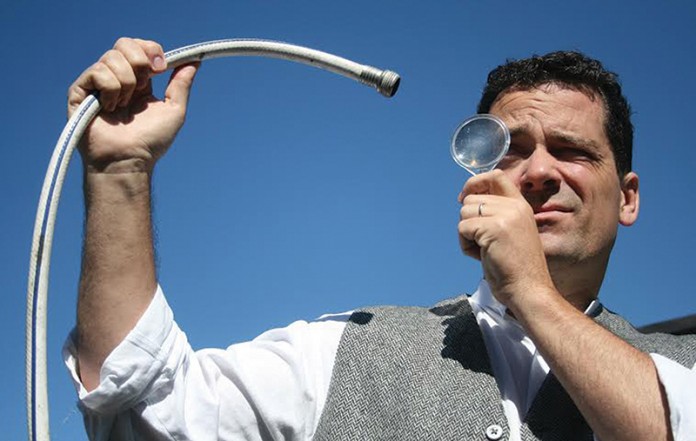A new viral online application lets you calculate the odds that your career will be automated. It’s an unnervingly existential tool: type in ‘occupation’ and discover if your work–your hours, earnings, identity–will be outsourced to a machine. ‘Telemarketer’? Robots are replacing you. ‘Waste collector’? You’re 93.4 percent likely to become redundant.And ‘water professional’?
Here, the algorithm breaks down. That leaves fallible humans, the underlying focus of The Source, to project and navigate the turbulent currents of our own fate.
For years, future prospects looked bleak. Water professionals seemed gifted at engineering our jobs out of existence.
Labour-intensive rural water use grew increasingly centralised, urbanised, and industrialised. Conveyance and treatment decisions became concentrated among fewer experts. Utilities replaced human teams with SCADA systems to calibrate water levels, pressure, and usage. AMI feedback detects leaks and eliminates those who manually read and process data from analogue meters.
But scientific technology offers water a brave, exciting future, one The Source fiercely embraces. We back ambitious ventures, showcase radical approaches, advance research breakthroughs and encourage the pioneering systems they lead to. Our progressive outlook is manifest in stories about carbon footprints, resource recovery plants, big data, Nereda, TaKaDu, UV radiation, de-ionisation and cutting edge tools that improve water’s quality, efficiency and accessibility.
Still, you need not be a Luddite to see the disruptive downside. Smart sensors, precision drip nozzles, and intrapipe robotic welders render countless utility, irrigation, service and other water positions obsolete. So does our outlook erode job security? To the contrary, it simply means the fast-evolving role of the water professional must adapt priorities to shifting pressures.
Those escalating pressures, and consequential responses, also drive this maiden issue. In our water insecure world we discover ‘hard’ science offers only half the solution. The other half requires integration of ‘soft’ sciences, with water professionals equally versed in liberal arts or the humanities.
A religious encyclical from Pope Francis–not exactly a geo-hydrologist– elevates ethics in allocations. Jordan River conflicts require those who combine law, history and psychology. The United Nations’ elite water technocrats could benefit from humble anthropological rigour. The complex physics of the Red Sea-Dead Sea Conveyance pales in comparison to its intricate diplomacy. In China’s war on water pollution, biochemists and engineers appreciate the tactical role of inclusive participation and vigorous debate.
In short, centrifugal forces are democratising the water profession. Scarcity and conflict require skills that lift water professionals out of the research lab or classroom and plonk them down amidst contentious interest groups, each making competing demands.
Some may chafe at the transition. A microbiologist may see little value in a liberal arts’ skill, lens, or perspective on water. But as more people make claims on water, such versatility is almost mandatory.
Indeed, that job security application revealed an instructive pattern. At the opposite extreme of the spectrum from ‘telemarketer’ was a job with only a 0.3 percent chance of being automated: ‘social worker’.
Why? Because social workers–like today’s water professionals–are forced to confront human nature.
Like them, we must negotiate face to face. We may hold advanced degrees but learn far more from daily interaction. We, too, live and breathe and thrive on uncertainty. Past history informs current challenges. We must also develop capacity for resilience. We measure success based on systemic outcomes, not technological inputs. They recognise substance abuse–of alcohol, drugs, or in our case, of water–is not a cause, but rather a symptom of a larger systemic problem.
Our work becomes indispensable to the extent that while society is hardly a neat, clean and orderly grid, we strive to improve that messy situation, innovating at the vital confluence of science and humanity.







